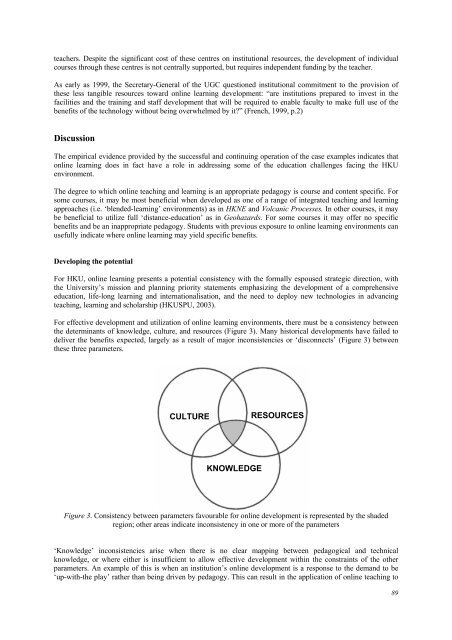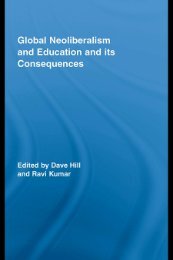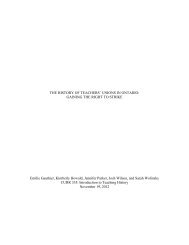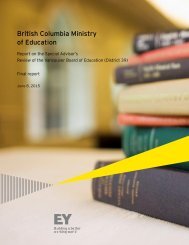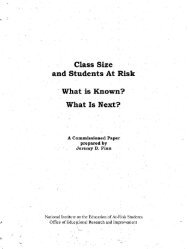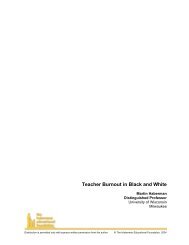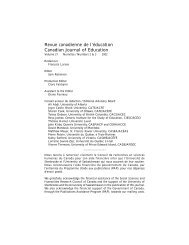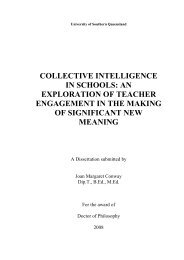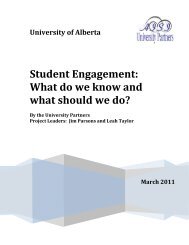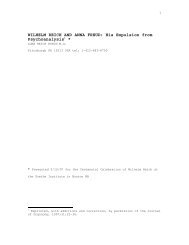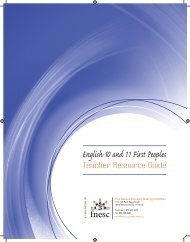October 2006 Volume 9 Number 4
October 2006 Volume 9 Number 4
October 2006 Volume 9 Number 4
Create successful ePaper yourself
Turn your PDF publications into a flip-book with our unique Google optimized e-Paper software.
teachers. Despite the significant cost of these centres on institutional resources, the development of individual<br />
courses through these centres is not centrally supported, but requires independent funding by the teacher.<br />
As early as 1999, the Secretary-General of the UGC questioned institutional commitment to the provision of<br />
these less tangible resources toward online learning development: “are institutions prepared to invest in the<br />
facilities and the training and staff development that will be required to enable faculty to make full use of the<br />
benefits of the technology without being overwhelmed by it?” (French, 1999, p.2)<br />
Discussion<br />
The empirical evidence provided by the successful and continuing operation of the case examples indicates that<br />
online learning does in fact have a role in addressing some of the education challenges facing the HKU<br />
environment.<br />
The degree to which online teaching and learning is an appropriate pedagogy is course and content specific. For<br />
some courses, it may be most beneficial when developed as one of a range of integrated teaching and learning<br />
approaches (i.e. ‘blended-learning’ environments) as in HKNE and Volcanic Processes. In other courses, it may<br />
be beneficial to utilize full ‘distance-education’ as in Geohazards. For some courses it may offer no specific<br />
benefits and be an inappropriate pedagogy. Students with previous exposure to online learning environments can<br />
usefully indicate where online learning may yield specific benefits.<br />
Developing the potential<br />
For HKU, online learning presents a potential consistency with the formally espoused strategic direction, with<br />
the University’s mission and planning priority statements emphasizing the development of a comprehensive<br />
education, life-long learning and internationalisation, and the need to deploy new technologies in advancing<br />
teaching, learning and scholarship (HKUSPU, 2003).<br />
For effective development and utilization of online learning environments, there must be a consistency between<br />
the determinants of knowledge, culture, and resources (Figure 3). Many historical developments have failed to<br />
deliver the benefits expected, largely as a result of major inconsistencies or ‘disconnects’ (Figure 3) between<br />
these three parameters.<br />
CULTURE<br />
KNOWLEDGE<br />
RESOURCES<br />
Figure 3. Consistency between parameters favourable for online development is represented by the shaded<br />
region; other areas indicate inconsistency in one or more of the parameters<br />
‘Knowledge’ inconsistencies arise when there is no clear mapping between pedagogical and technical<br />
knowledge, or where either is insufficient to allow effective development within the constraints of the other<br />
parameters. An example of this is when an institution’s online development is a response to the demand to be<br />
‘up-with-the play’ rather than being driven by pedagogy. This can result in the application of online teaching to<br />
89


